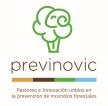Hydronutri Operational Group: Development of innovative fertilizers with advanced water retention capabilities to improve agricultural productivity
- Type Operational group
- Status In progress
- Execution 2024 -2027
- Assigned Budget 150.000,00 €
- Scope Autonómico
- Autonomous community Aragón
The main objective of the project is the development of innovative fertilizers with advanced water retention capabilities to improve agricultural productivity.
The development of an innovative biofertilizer with improved water properties promotes the economic viability and competitiveness of agricultural farms. This biofertilizer not only increases crop resistance to adverse weather conditions such as drought, but also reduces dependence on chemical fertilizers, promoting more sustainable practices.
By strengthening short supply chains and local markets with sustainable local products, both farmers and consumers benefit, strengthening the local economy and promoting regional food security.
In environmental terms, the project contributes to the conservation of natural resources and climate change mitigation by reducing pollution and improving soil and water quality, thereby strengthening the resilience of local ecosystems and contributing to climate change adaptation and mitigation in the region.
By strengthening short distribution chains and local markets with sustainable local products, both farmers and consumers benefit, strengthening the local economy and promoting regional food security. Environmentally, the project contributes to the conservation of natural resources and climate change mitigation by reducing pollution and improving soil and water quality, thus strengthening the resilience of local ecosystems and contributing to climate change adaptation and mitigation in the region.
The project's actions follow a strategy designed to achieve the stated objectives. The project structures its actions into four strategic Work Packages (WPs).
- PT1: Resource assessment and production of biofertilizer for water retention: T1.1 Characterization of the different materials/additives to be added to the new fertilizer. T1.2 Study of the combination of the different fertilizer components, compositions, and proportions. T1.3 Biofertilizer production. T1.4 Design of the different pretreatments and granulometry, pelleting, and storage of the fertilizer. T1.5 Product testing (prototype).
- PT2: Field application trials of biofertilizer: T 2.1. Study of field application, with the participation of CIRCE, DEFEDER and ECOCINCA. T 2.2. Preparation of the demonstration plan. T 2.3: Demonstration of application in rice and monitoring of the cultivation system. T 2.4: Demonstration of application in dryland arid land and monitoring of the cultivation system.
- PT3: Knowledge Exchange: T3.1 Workshops on the impact of the new fertilizer on the soil. T3.2: Workshops on environmental, social, and economic benefits. T3.3: Evaluation of the potential for replication in other municipalities/regions of Aragon for field application of the fertilizer.
- PT4: Dissemination and communication: T 4.1: Project workshops and participation in events. T 4.2: Dissemination in the region. T 4.3: Digital media and social networks and Generating materials.
Soil degradation is a global problem that affects the productivity and sustainability of agricultural systems. Intensive farming, excessive use of chemical fertilizers, and soil erosion have led to the loss of essential nutrients, a decrease in organic matter, and soil compaction. This reduces the soil's water and nutrient retention capacity, limiting healthy plant growth and development.
Furthermore, water scarcity is a major challenge for agriculture, especially in arid and semi-arid regions. Water is a non-renewable resource, and its demand is constantly increasing due to its vitality and the unstoppable global population growth. Limited water availability makes plant cultivation difficult and reduces agricultural productivity in terms of both crop quantity and quality.
In this sense, soil moisture retention is crucial to ensure an adequate supply of water to plants and minimize the need for irrigation. Arid zones, although productive with intensive use of soil water resources, are areas of high risk and environmental impact, necessitating the constant exploration of new and appropriate technologies that promote the efficient use of natural resources such as water, with a focus on greater sustainability. The limited availability of water resources for dryland arid crops represents a significant problem in the agricultural context of northeastern Spain. This problem is exacerbated in crops that require greater amounts of water, such as rice and corn.
The main objective of the project is the development of innovative fertilizers with advanced water retention capabilities to improve agricultural productivity.
The development of an innovative biofertilizer with improved water properties promotes the economic viability and competitiveness of agricultural farms. This biofertilizer not only increases crop resistance to adverse weather conditions such as drought, but also reduces dependence on chemical fertilizers, promoting more sustainable practices.
- Coordinator/entity name: CIRCE Technology Centre
- Postal address: Avenida Ranillas, 3D, 50018, Zaragoza
- Coordinator/entity email: dmer@fcirce.es jmarano@fcirce.es
- Telephone: 976976859 639464145
This region, characterized by a combination of semi-arid climatic conditions and growing agricultural demand, faces increasing challenges in terms of access to and scarcity of water for agriculture. First, climate change has altered precipitation patterns, reducing rainfall and increasing climate variability. Studies have shown a gradual decline in average annual precipitation in the region, leading to a reduction in the availability of surface and groundwater for agriculture. Furthermore, the increased demand for water for urban, industrial, and recreational uses has intensified competition for this limited resource, thereby reducing the amount of water available for agricultural irrigation.
Additionally, research suggests that, due to climate change, a further decrease in rainfall is expected in the future, further exacerbating the water scarcity situation for agriculture in northeastern Spain. Regarding cereal crops in dryland arid lands, the lack of rainfall has negatively impacted the availability of water for supplemental irrigation, resulting in lower yields and greater vulnerability to drought. The limited availability of water in the soil layer negatively impacts leaf growth and stomatal conductance. In Mediterranean environments, where cereal crops primarily depend on soil moisture stored prior to sowing, soil type, tillage practices, and the amount of stored water are factors that impact the success of crop production.
Therefore, rainfall patterns before and during the growing season can be important determinants of crop yield. High water demand, especially during the vegetative and late reproductive growth stages, makes crop growth processes dependent on irregular rainfall. This results in high variability in yields, which also influences the efficiency of environmental and agronomic factors.
- CIRCE Technology Centre
- DEFEDER ALCOLEA SL (j.monter@defeder.es j.claver@defeder.es)
- ECOCINCA, S.L. (ecocinca@ecocinca.es)
- SOCIEDAD COOPERATIVA OSCA DE AGRICULTORES ARROCEROS (maso@copeosca.es administracion@copeosca.es)
- UAGA (aelorriaga@uaga-aragon.com)
- CIRCE Technology Centre







